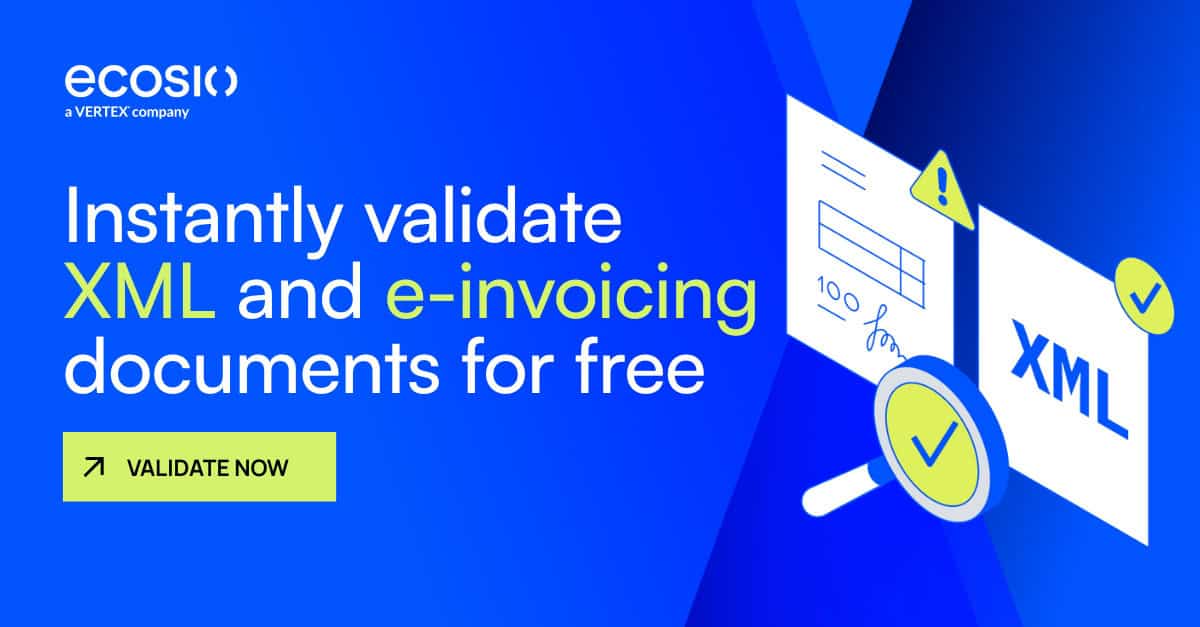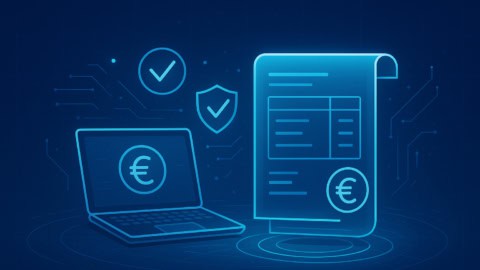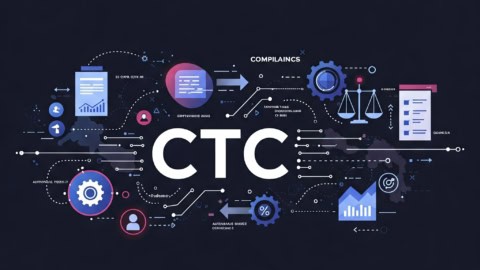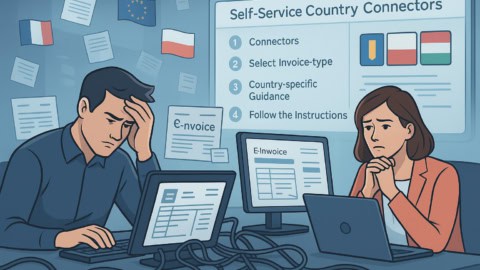TL;DR summary
- VeriFactu (Royal Decree 1007/2023): Mandatory certified invoicing software from 1 January 2026 (corporates) and 1 July 2026 (freelancers)
- Crea y Crece Law (Law 18/2022): Mandates B2B e-invoicing using EN 16931-compliant formats
- Dual platform model: Invoices exchanged via public AEAT system or accredited private platforms
- Mandatory status reporting by recipients within four days
- SII taxpayers remain exempt due to existing real-time reporting
Introduction
Over the past few years, Spain has introduced several key e-invoicing regulations designed to digitise financial processes and reduce administrative inefficiency.
These reforms have already enabled both the Spanish government and private sector to experience the benefits of automation while meeting the requirements of EU Directive 2014/55/EU for public procurement.
This guide outlines the current and upcoming mandates that define Spain’s mandatory e-invoicing landscape, and how businesses can prepare for full compliance.
What is the current mandatory scope?
Spain’s e-invoicing operates under two distinct but converging frameworks:
1) VeriFactu – Certified invoicing software (Royal Decree 1007/2023)
Under Royal Decree 1007/2023, all taxpayers not already under the Immediate Information Sharing (SII) regime must use certified invoicing software, known as VeriFactu.
This software ensures each invoice’s integrity and traceability by generating:
- A unique QR code, and
- A digital “fingerprint” (hash)
Each validated invoice must be immediately and automatically sent to the Spanish Tax Authority (AEAT).
Implementation deadlines:
- Corporate taxpayers: from 1 January 2026
- Freelancers / Individuals (Autónomos): from 1 July 2026
2) SII regime
Taxpayers already in the SII system (typically those with annual turnover over €6 million, VAT groups, or voluntary participants) are exempt, as SII already provides real-time VAT ledger reporting within four days of invoice issue or receipt.
Crea y Crece: B2B e-invoicing becomes mandatory
The Ley Crea y Crece (Law 18/2022) introduces mandatory B2B e-invoicing for nearly all domestic commercial transactions.
The law is awaiting publication of its final Ministerial Order, which will trigger phased implementation.
| Annual Turnover | Compliance Deadline |
|---|---|
| Over €8 million | One year after publication of the final technical regulation |
| Under €8 million | Two years after publication |
Key obligations under Crea y Crece
1) Structured format
E-invoices must comply with EN 16931, using one of the following accepted formats:
- FacturaE
- UBL
- CII
2) Mandatory status reporting
Recipients must electronically communicate the invoice status (e.g. acceptance, rejection, payment) within four calendar days via the public system. This aims to combat payment delays and improve cash-flow visibility.
3) Dual platform model
Businesses will exchange invoices via either:
- Accredited private platforms, or…
- A public e-invoicing solution managed by the AEAT
4) Interoperability
Interoperability between all platforms will be mandatory, ensuring seamless transmission across systems.
Standards and communication methods for e-invoicing in Spain
The existing FacturaE format — an XML-based structure with XAdES digital signature — remains the core e-invoicing standard in Spain.
For the upcoming B2B mandate, all accepted formats (FacturaE, UBL, CII) must be EN 16931-compliant, ensuring international compatibility and alignment with EU standards.
Platforms
- FACe – The central B2G e-invoicing platform
- FACeB2B – The national platform for B2B exchanges
- New public and private platforms are being developed to support the increased transaction volume expected under the Crea y Crece Law
E-invoicing in Spain at a glance
| Standards | Mandatory? | Platforms | Signature Required? | Archiving period |
| FacturaE, UBL, CII (EN 16931) | Yes – for all B2G transactions (>€5,000) and soon all B2B | FACe (B2G) and private / AEAT platforms | Yes – digital certificate required | 6 years (minimum 4 years under Crea y Crece) |
How to meet e-invoicing regulations in Spain
Compliance in Spain now involves managing two complex layers simultaneously:
- VeriFactu certification and integration
- B2B e-invoicing readiness under Crea y Crece
Both frameworks require synchronised technical preparation, including software certification, secure data exchange, and real-time communication with the AEAT.
For many businesses, handling this internally can be resource-intensive and risky. Partnering with a trusted service provider such as ecosio offers a practical route to full compliance.
What can a reliable e-invoicing provider offer?
A good provider should be able to…
- Establish secure web-service connections to AEAT and public systems
- Enable your ERP to send and receive invoices in all supported formats (UBL, CII, FacturaE)
- Automate invoice status reporting within the required timeframe
- Ensure compliance with VeriFactu’s integrity and traceability rules
Given the increasing complexity of Spanish e-invoicing, working with an experienced integration partner ensures robust, future-proof operations.
Ready to plan out your implementation?
As Spain moves towards full digitalisation under VeriFactu and Crea y Crece, preparation is essential. At ecosio we’re experts in e-invoicing and electronic data interchange. Over the years we have helped thousands of businesses to streamline their supply chain and improve key processes, all while minimising pressure on internal teams.
For more information on how we can help you meet e-invoicing regulations in Spain and for advice on what practical steps you can take towards automation please contact us. We are always happy to answer questions! More information on ecosio’s e-invoicing solution can also be found here.
Stay up-to-date
Check out our constantly updated e-invoicing in Spain page for a detailed breakdown of the current e-invoicing regulations.
You may also be interested in our bi-monthly e-invoicing updates newsletter in which we detail all major country-specific e-invoicing developments.
Are you aware of our free XML/Peppol document validator?
To help those in need of a simple and easy way to validate formats and file types for Spain, from CII (Cross-Industry Invoice) to UBL and FacturaE, we’ve created a free online validator.
Note: the validator supports all other major e-invoice formats as well.
















